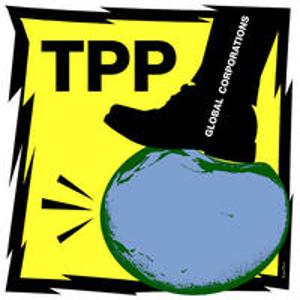7 Reasons Fast Track Is Off Track

During the secret discussion of the Trans-Pacific Partnership (TPP) trade deal, extreme corporate interests are pushing for a Fast Track process that would not only hurt working families in the United States, but in the other countries involved in any final deal. Here are seven reasons why Fast Track is off track:
1. People oppose it: More than 60% of voters oppose Fast Track for the TPP free trade deal.
2. It doesn't reflect modern values: Fast Track is a copy of the approach to trade taken by President Richard Nixon, pursuing the passage of trade deals regardless of the effects a deal might have on wages, jobs, small businesses and the environment.
3. It's a job killer: Past trade deals have cost American jobs in large numbers. For example, the North American Free Trade Agreement led to the loss of more than 682,000 jobs.
4. It makes it harder for workers to get a raise: Previous Fast Tracked deals have depressed wages and weakened the rights of workers to organize and collectively bargain.
5. It increases inequality: Previous trade deals have greatly exacerbated CEO-to-worker pay disparities, so that the current ratio is 354-to-1.
6. It's undemocratic: Fast Track limits debate and prohibits amendments and doesn't give the public the opportunity to influence the process.
7. It gives corporations more power: By including "investor-to-state dispute settlement" provisions, foreign investors in the United States and U.S. investors operating in foreign countries can skip traditional methods of complaining about laws they don't like and sue nations directly in private arbitration tribunals made up of for-profit arbitrators. This would give corporations and foreign interests an influence over our economy that the rest of us don't have.
***
This has been reposted from the AFL-CIO.

